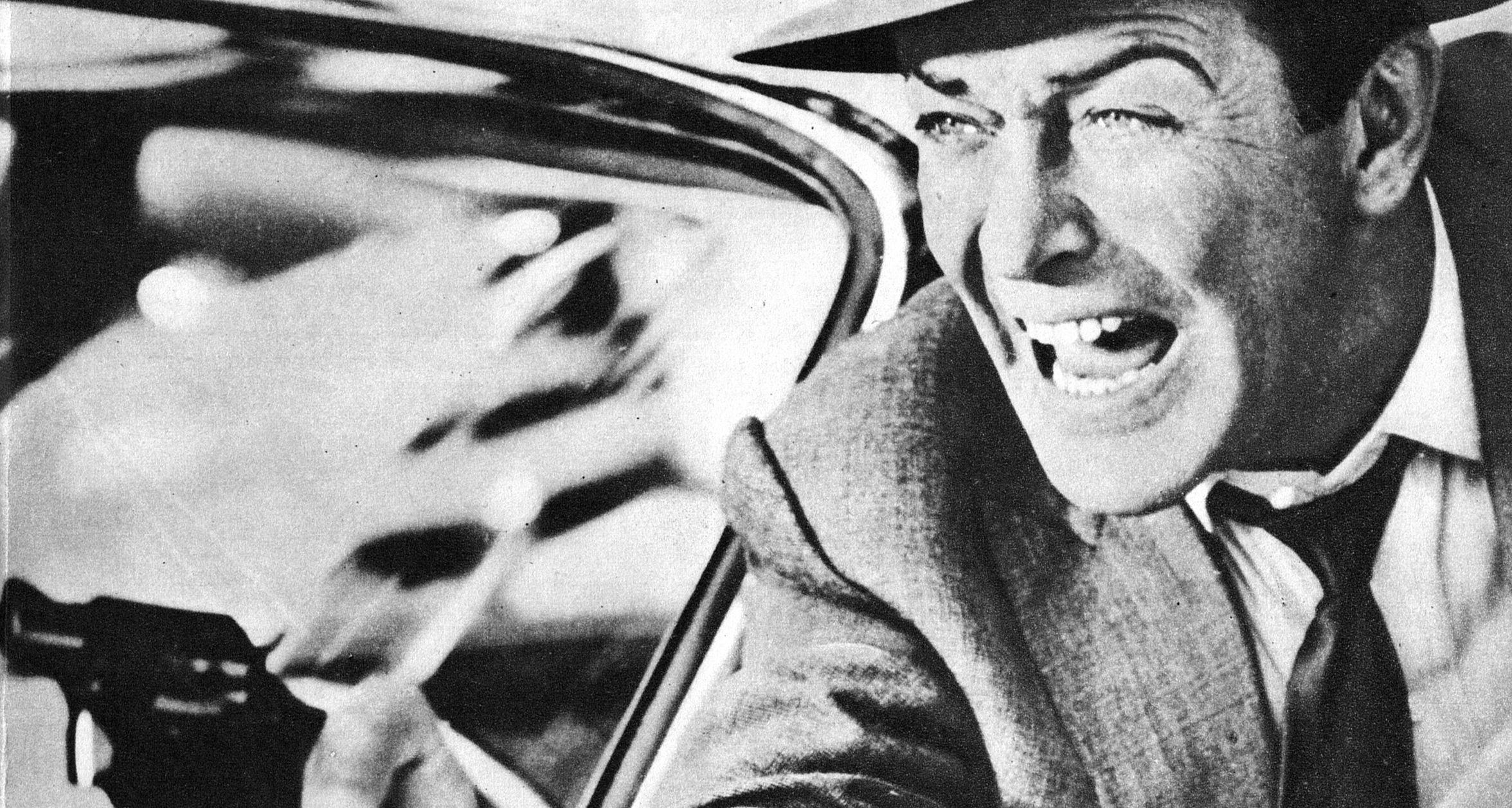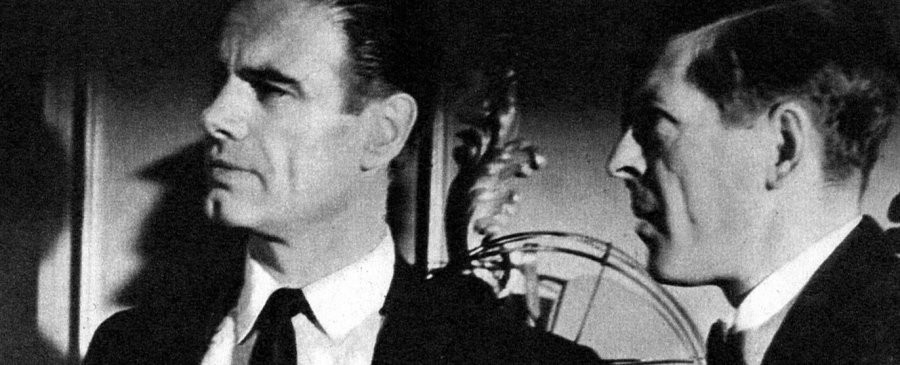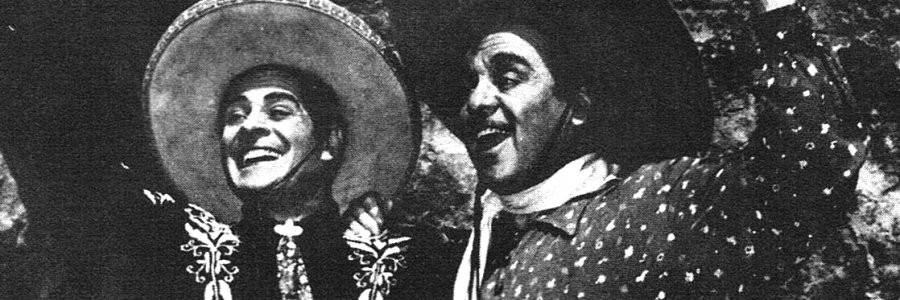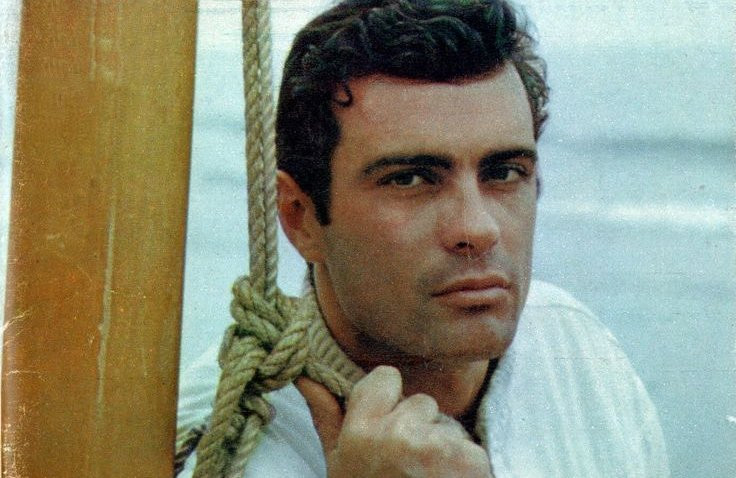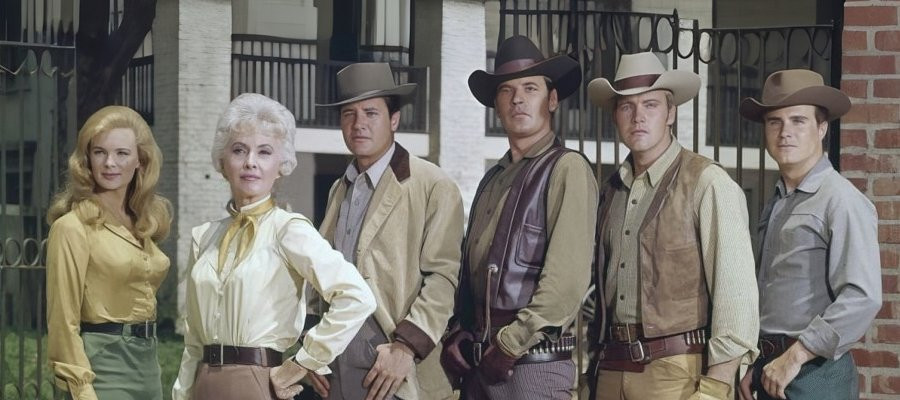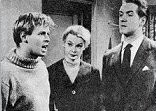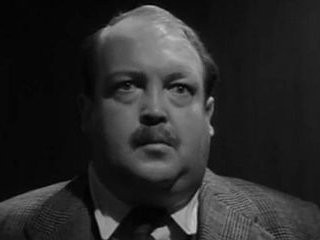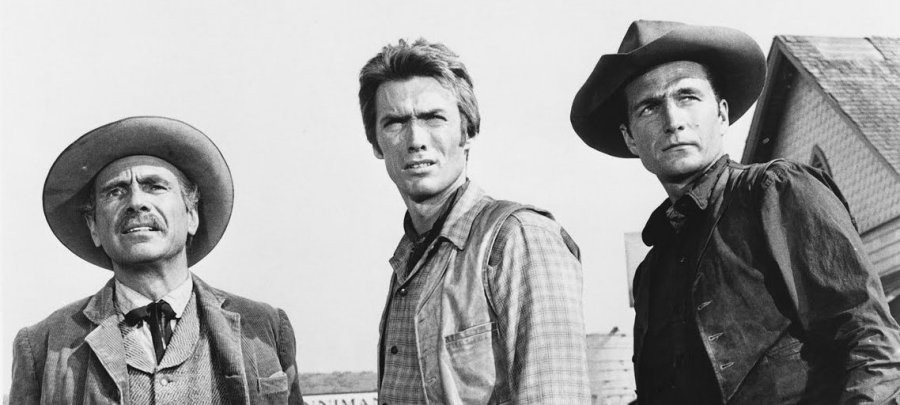
Rawhide
1959 - United StatesBefore Clint Eastwood became the silent, squinting icon of the spaghetti Western, he was Rowdy Yates, the brash young drover on Rawhide, one of the longest and most beloved cattle-drive dramas in American television history. Airing from 1959 to 1966, Rawhide was inspired by the real-life 1866 diary of George Dutfield, and it delivered a rugged, episodic glimpse into the gruelling journey of a group of cowboys herding cattle from San Antonio, Texas to Sedalia, Kansas.
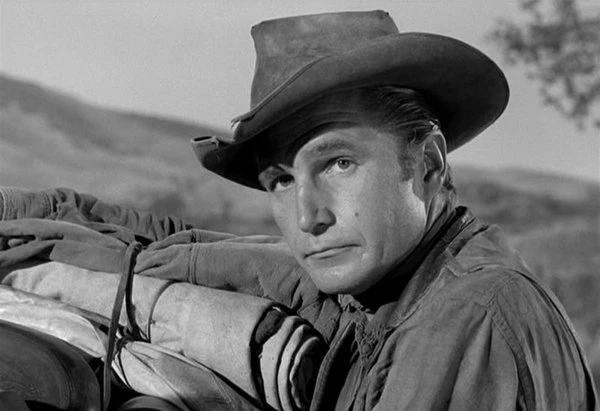
At the heart of the series was Gil Favor, played with quiet authority by Eric Fleming. As trail boss, Favor was a principled and no-nonsense leader, charged with guiding his crew and the thousands of head of cattle in their care through an unforgiving frontier marked by river crossings, stampedes, outlaws, and moral dilemmas. Yet for all of Favor’s leadership, it is Rowdy Yates, the impulsive second-in-command played by a young and then-unknown Clint Eastwood, who has since become the show’s lasting legacy. Eastwood’s performance caught the eye of Italian director Sergio Leone, ultimately launching him into global stardom with A Fistful of Dollars and the Dollars Trilogy.
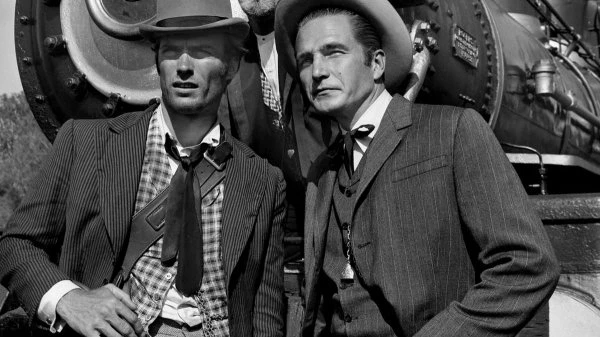
Rawhide wasn’t just a showcase for future stars; it also offered a strong ensemble of memorable supporting characters. Paul Brinegar’s Wishbone, the grizzled cook with a dry wit and deep loyalty to the crew, brought comic relief and heart. James Murdock as Mushy, his slow but sweet assistant, and Sheb Wooley as scout Pete Nolan (who moonlighted as a novelty singer with the 1958 hit Purple People Eater) rounded out a cast that felt authentic to the dusty, dangerous trail they travelled.
What set Rawhide apart from other Westerns of its era was its blend of adventure, character drama, and morality plays, all underscored by one of the most iconic theme songs in television history. Written by Ned Washington and Dmitri Tiomkin, both Oscar magnets, and powerfully performed by Frankie Laine, the Rawhide theme is a rousing, unforgettable anthem that still evokes images of stampeding cattle and open plains.
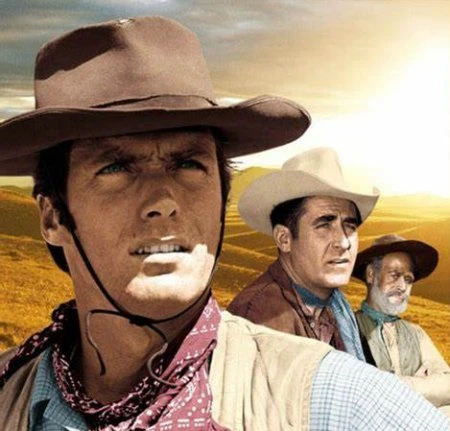
In a bold shift during the fall of 1965, Eastwood’s Rowdy Yates was promoted to trail boss, with Gil Favor written out. Though Eastwood ably stepped into the lead, the change signalled the beginning of the end. Ratings declined, and by January 1966, Rawhide was cancelled - ironically, just as Eastwood's star was about to rise in Europe.
Though its final seasons may have lacked the punch of its early years, Rawhide remains a staple of classic Western TV, thanks to its gritty realism, compelling characters, and the unique cattle-drive format that allowed for varied, self-contained storytelling with each episode. It paved the way for both serialized Westerns and character-centric dramas, and it helped forge one of Hollywood's most enduring stars.
Seen this show? How do you rate it?
Seen this show? How do you rate it?
Published on January 24th, 2019. Written by Marc Saul for Television Heaven.


